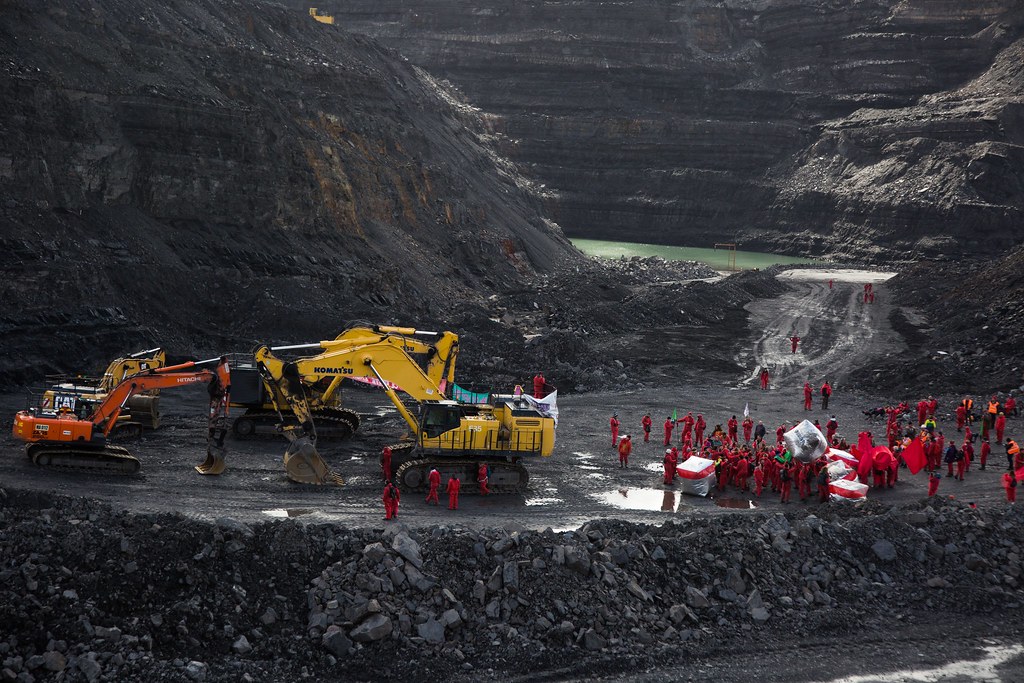A public inquiry has begun into the development of the UK’s first deep coal mine in 30 years. The project, run by West Cumbria Mining (WCM), would extract 2.78 million tonnes of coal a year, up until 2049, but has been widely criticised for its potential environmental impact. The inquiry began on September 7th and is expected to run for the next four weeks.
The key areas of concern with the mine are potential CO2 emissions, and that the metallurgic coal within is not the kind the UK steel industry needs, raising further questions about whether the project is worth the environmental cost.
Firstly, research conducted by Green Alliance estimates that 8.4 million tonnes of CO2 would be released per year by the mine. Then secondly, as much as 85% of the coal would be exported, with UK steel industry continuing to rely on imports of actually useful material. Maggie Mason, from the charity South Lakes Action on Climate Change Towards Transition, said: “Our expert witnesses show that the coal from this mine is not the type that the UK and EU steel industry needs, so it would not replace current imports.”
With COP26 on the horizon, and the disastrous consequences of climate change already playing out across the world, it is a wonder that the Conservative government are not more opposed to the Cumbria project. Instead, many Tory politicians have in fact spoken in favour of the mine. MP for Copeland, Trudy Harrison, and Conservative mayor of Copeland, Mike Starkie have both pushed for the project, even when Cumbria County Council withdrew its support this February. They argue: “The project fully accords with the UK’s green industrial commitments and includes legal conditions that production will not go beyond 2049 and the highest levels of greenhouse gas emission mitigation.”
Their statement only goes to show the failures of the government’s green commitments then, as measures that allow 8.4 million more tonnes of CO2 to be emitted a year for more than two decades are clearly not sufficient. This mine is not necessary, and therefore any harm it could do to the climate is too great a cost.
It is not only the county council who have wavered in their support for the project, but also EMR Capital, a Singapore-based firm that has already invested close to £30 million into West Cumbria Mining for the scheme. The firm withdrew its funds in what it called “cost-saving” measures, leaving some workers at WCM facing redundancy.
Tony Bosworth, a campaigner for Friends of the Earth, said: “The prospect of a new mine in Cumbria casts a long shadow over the UK government’s climate strategy and its hosting of crucial climate talks in Glasgow in a few weeks’ time. The government has said coal must be consigned to the history books and this must mean all coal not just that used for power generation.”
The Conservatives have done little to address these concerns, arguing that decisions like this “are generally best determined locally, by local councils that know their own area best, rather than by central government.”
However, the emissions from a mine in Cumbria would not just hurt Cumbrians, but all people of Britain and the world. This issue is not simply one for the local authority, something that Westminster can ignore. For the government to suggest otherwise demonstrates a clear lack of responsibility. The Conservatives refuse to be held accountable for their actions – or inaction – and would like to shift any blame onto this one county council alone.
Philip English, is a member of the YCL’s Manchester Branch



